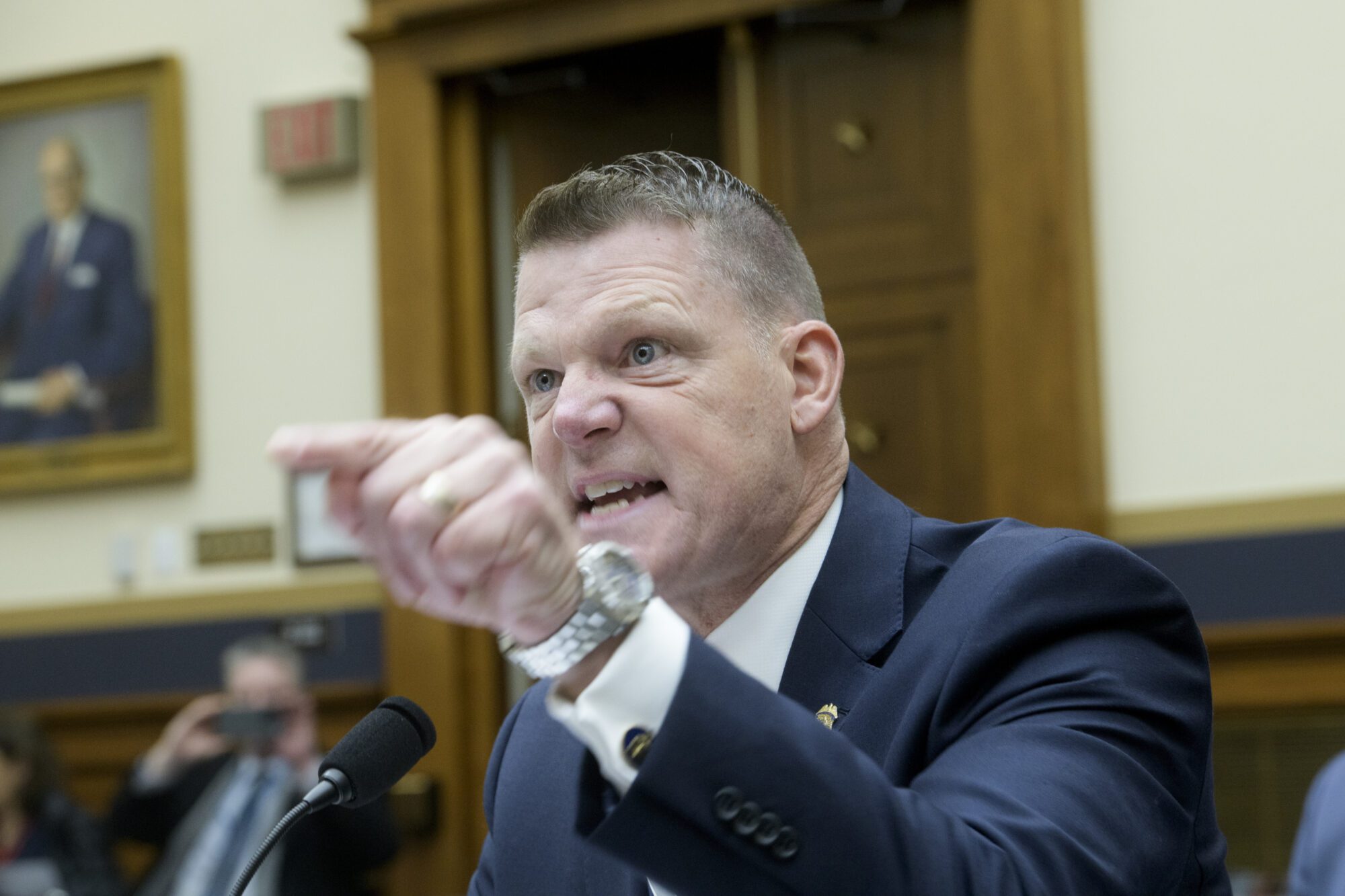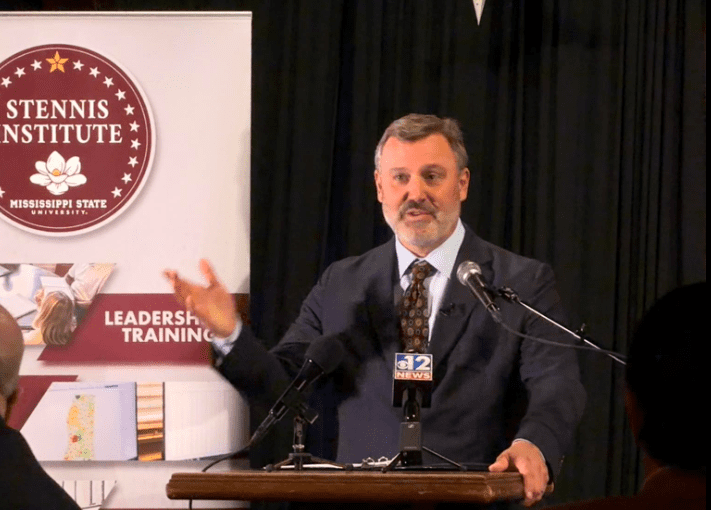
- The Mississippi Senate Education Committee recently heard from experts on potential ways to attract and retain more educators.
During a recent Senate Education Committee hearing, Dr. Courtney Vancleave, Mississippi Department of Education’s Executive Director of the Office of Teaching and Leading, said there are about 3,000 teaching vacancies across the state, with larger shortages seen in elementary teachers and high school teachers.
However, Mississippi isn’t the only state facing a teacher shortage.
According to the Learning Policy Institute, teacher shortages are occurring nationwide. In 2023, it was estimated more than 400,000 teaching positions in the United States were unfilled or filled by those not fully certified for the position.
MDE defines a teacher vacancy as a class without a licensed and certified teacher, leading local superintendents across the state to depend on long-term substitutes.
Teacher turnover an issue across the South
The education profession is facing an issue with turnover. Southern Regional Education Board Project Manager Megan Boren told the Senate committee that teacher turnover has been on the rise across the southern region over the past four years, with Mississippi’s most recent rate sitting at roughly 23 percent.
“These turnover rates are higher in the South than they are in the rest of the nation as well, and so that is concerning to us,” Boren said.
The turnover rate in the region averages 18.2 percent, according to numbers from the 2022-2023 school year shared by Boren. For teachers with less than five years of experience, that rate jumps to about 45 percent.
Rates across the southern region vary slightly but are nearly identical to Mississippi’s.
According to information Boren presented, Louisiana’s turnover rate is 15 percent, Texas reported a rate of 21.4 percent, and Oklahoma reported a 24 percent turnover rate. The state in the southern region to report the highest turnover rate was Arkansas at 25.8 percent.
No matter the state, teacher turnover has been reported to be highest in schools located in areas of high poverty, according to the Learning Policy Institute.
Results from the most recent Teacher Recruitment and Retention Survey show Mississippi’s educators are leaving the profession for a variety of reasons, including a lack of trust and autonomy in doing their jobs and a need for better support with students and parents.
Mississippi’s turnover rate matches with the national average, where 23 percent of educators across the United States were reported to have left their teaching jobs, either to move to a new school, take a different job within the same district, or leave education altogether.
Mississippi Excellence in Teaching Program showing success
To address the problem, Boren suggested Mississippi develop programs that could allow students to use scholarships or provide student loan forgiveness for prospective educators as a method to address the shortage, particularly when it comes to special education and STEM teachers.
Mississippi currently has a scholarship program aimed at assisting high performing college students planning to enter the education field through the Mississippi Excellence in Teaching Program. A collaboration between Ole Miss and Mississippi State University, the program pays for “up to the full cost of attendance after all other aid has been exhausted.”
Requirements to be considered for the program include a GPA of 3.5, an ACT score of at least 28, and a contractual agreement to work in any Mississippi public school upon graduation for at least five years.
Ole Miss and Mississippi State both participate in the Mississippi Excellence in Teaching Program. Representatives at Ole Miss report that 109 students at the campus were enrolled in the program this fall, with an estimated 100 or more enrolled at Mississippi State. Each campus has space in the program for up to 120 students.
“We have had 185 graduates from the program here at UM, of which 171 began teaching in Mississippi public K-12 schools.” Blake Adams, METP Coordinator at Ole Miss told Magnolia Tribune. “Roughly 85 percent of UM METP grads who have had the opportunity to complete their 5-year service agreement have done so.”
Students are allowed to request a pause in the service agreement at any time in order to complete or pursue graduate studies, Adams added. A number of students have taken advantage of that opportunity right after graduation or at some other point within the 5 years of service.
Teacher pay remains a concern
Other enticements to address the teacher shortage, as suggested by Boren, included assisting with the cost of obtaining a teaching license, offering higher pay scales for those positions in most need, and making the process to certify an out-of-state teacher easier. Grant programs are also available to help provide additional individual pay.
Certain school districts across the state offer stipends for teachers in critical or hard-to-staff positions. For instance, Jackson Public Schools offers a $5,000 stipend over three years to teachers in the critical areas of 5th and 8th grade Science and Biology, among others. Teachers who choose to seek positions in the hard-to-staff areas of early childhood education, elementary education, and mathematics can receive a stipend of $7,500 over three years. CTE teachers in JPS are eligible for a $10,000 stipend over that three-year period.
Despite recent pay raises approved by the Legislature, teachers who participated in Mississippi’s most recent Teacher Recruitment and Retention Survey indicated that the rising cost of living due to inflation is a driving reason behind requests for additional salary increases.
The Learning Policy Institute reports that teachers across the nation earn an average starting salary of $49,760. Mississippi is just below that, offering teachers an average starting salary of $48,480. The neighboring state of Alabama starts educators at $44,530, while Louisiana is just above the national average at $50,340.
Training prospective teachers sooner
Some states are using their career and technical education (CTE) programs to give prospective teachers more hands-on experience at younger ages, even in high school, Boren said.
She noted a CTE program currently offered through Vanderbilt University in Tennessee that provides a CTE teaching pathway.
“We see that as a bright spot that more states can do to really grow their own teachers from inside of their state, rather than trying to compete with the teachers who are already in the system and profession,” Boren told lawmakers.
Through these courses the potential teachers get practical experience, which not only helps them be more effective educators when they enter the classroom, but that experience positively affects their retention rate.
Certain Mississippi school districts, such as the Pascagoula-Gautier School District, have similar future educator programs in their CTE offerings. These programs can help funnel future teachers into college, helping students apply and be accepted to the METP programs at Ole Miss and Mississippi State.











